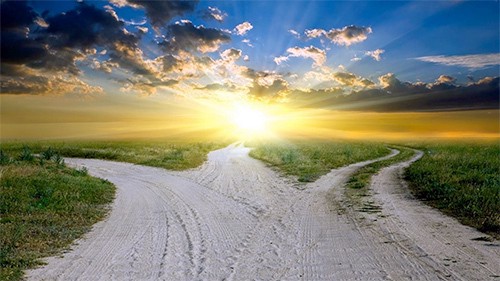The two most important days in your life are the day you are born and the day you find out why. — Mark Twain
The most obvious and important things in life become the hardest realities to keep track of. Who is important? What is most meaningful? When we are at our best, who are we with, what are we doing? How do we spend our time? Where is our energy focussed? The challenge of such questions is less about answering and more about asking.
Adults take peculiar delight in asking little children what they want to be when they grow up. Yet as adults, we don’t ask ourselves the equivalent question. Are we inhabiting the life we intended to live?
We construct busy lives that appear productive and promising at the outset. But too often we find ourselves on automatic pilot. The course begins to feel off track. Goals are accomplished, milestones met, and yet we may feel increasingly hollow. What should animate us begins to amplify our restlessness. No matter how much we eat we never feel full. No spice provides flavor. Music cannot be loud enough. Loved ones seem remote and draining. Color leaches out of our experience. What was once “I want” is now “I must.” Happiness is diversion.
Why?
We have arrived somewhere that is not the destination we had plotted on our map. We are lost.
Examining what adults do when they literally get lost provides a helpful model for understanding the experience of losing one’s way in life. In both realms, the idea of mental maps is central. We all have two kinds of mental maps, one of our physical environment and one of ourselves. They provide representations of where we are and who we are.
The two maps are linked and inseparable. Psychologically, there is no such thing as me without relation or location. We exist in a context of people and places. We are the product of all the interactions of these two spheres. The maps allow us to locate ourselves in our own mind.
Getting lost is less about a place and more about a state of mind. As one wanders off course the map of self and the map of environment begin to fracture. This is not experienced as losing one’s way but rather as losing one’s self, one’s existence, one’s mind. The overwhelming distress this triggers explains how we can tell ourselves everything is okay despite overwhelming evidence to the contrary.
As we wander deeper into the woods we see things that make no sense according to our map. In an attempt to allay our anxiety, we do what is known as bending the map in orienteering. We rationalize that snow or leaves are concealing key landmarks. People rarely retrace their steps, a move that often would have saved their lives. Instead they accelerate on the same course, their speed driven by growing fear and the desire to escape the experience.
Losing one’s way in life is no different. We make a plan (or accept someone else’s) and demonstrate a bizarre loyalty to it despite data indicating we missed a turn and might want to retrace our steps. In response we rededicate ourselves to the plan and dive deeper. We bend the map. We tell ourselves the next promotion, move, house, child, raise… will fix things. We are never home because we’re working so hard for the family. Everything will be okay, it’s just a rough time right now.
We fool ourselves and pretend we know where we’re heading. However our plan is now unrelated to what had been our purpose, our mission. We have lost our selves.
Just because you know how to get from one place to another doesn’t mean you know where you are.
So how do you get back on track?
The bottom line is you must update your maps all the time. We all attempt to make the external world fit our expectations. We all have plans. They don’t include divorce, loss, illness or failure. When our circumstances cannot be changed we are called upon to change ourselves. If the mental map doesn’t change, you navigate in a world that does not exist.
It has been said that mountain climbers are the only sportsmen to celebrate victory at halftime. To summit is to win. Any good mountaineer knows the danger of such thinking. Most accidents occur on the descent. The climbers are tired and perhaps overconfident at having conquered the mountain. They also feel they have already accomplished their goal.
Like mountaineers, we often get into trouble after some measure of success. We seem better at working toward a goal than living with its accomplishment and making the next right move. We often interpret our success as indicating we are on the right track. Perhaps we get overconfident and stop paying attention.
But the world changes. We become aware of such change by listening to how we feel. Whether in the wilds of the woods or life, if something doesn’t feel right, it probably isn’t. Look at it. Change your map accordingly. Make a course correction. It’s the only way to get home.
Originally published at www.huffingtonpost.com on August 25, 2016.
Originally published at medium.com


